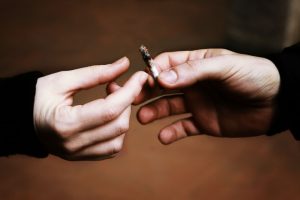A new Florida law signed by Governor Rick Scott takes aim at opioid trafficking and possession, imposing harsher penalties for those convicted of dealing and using pills, heroin, fentanyl and more. The measure, House Bill 477, enacts new mandatory minimum sentences for opioid users and dealers and establishes new bans on trafficking drugs that include synthetic marijuana and fentanyl.
The new law sets mandatory minimum sentences for convicted dealers, which will force judges to lock away drug offenders for extended periods of time with little opportunity for discretion.
All this is despite the growing realization that “tough-on-crime” drug laws simply do not work, and disproportionately affect poverty-stricken and minority communities. Meanwhile, the state will receive $27 million in federal grant money to help pay for its enforcement. Continue reading
 Fort Lauderdale Criminal Attorney Blog
Fort Lauderdale Criminal Attorney Blog








